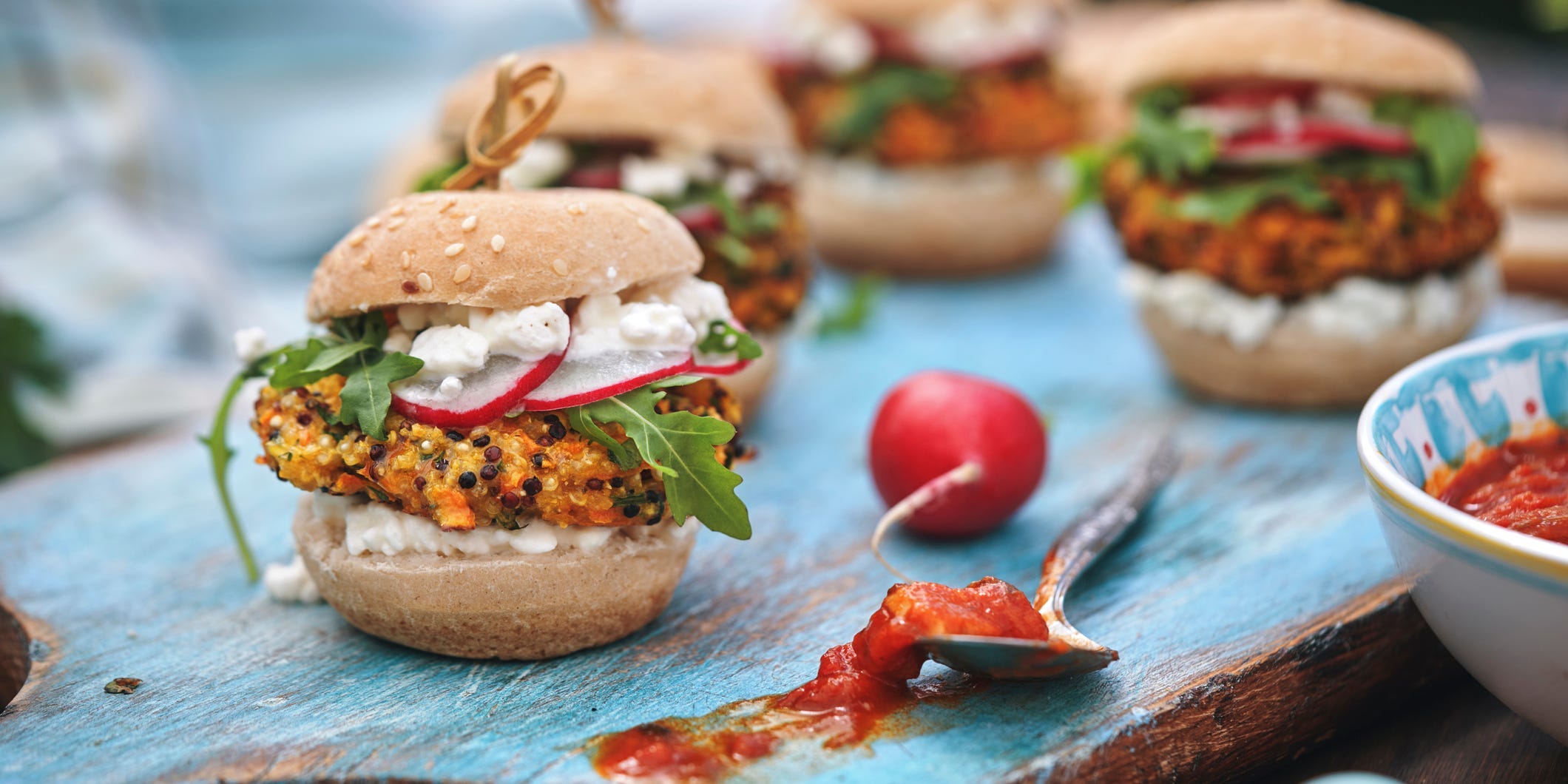
GMVozd/Getty Images
- Anti-inflammatory foods may help reduce inflammation and the chronic diseases associated with it.
- Anti-inflammatory foods include nuts and seeds, fruits and vegetables, and protein like fatty fish.
- Anti-inflammatory diets exclude foods like processed meats, high-sodium snacks, and whole-fat dairy.
- Visit Insider's Health Reference library for more advice.
Some of the most common and debilitating diseases, including heart disease, diabetes, arthritis, cancer, Alzheimer's, and Crohn's disease, have been linked to chronic inflammation. Fortunately, research indicates that it's possible to keep inflammation at bay by maintaining a healthy diet.
Certain foods have been shown to trigger the inflammatory response, while others contain antioxidants and other substances that can keep it in check. The anti-inflammatory diet is based on this principle.
Below is a list of foods that can either promote or combat inflammation, as well as a 7-day anti-inflammatory meal plan.
Anti-inflammatory foods and inflammatory foods
The anti-inflammatory diet encourages eating whole foods (like fruits, vegetables, nuts, seeds, and fish) and avoiding processed foods that are high in refined sugars, flours, and trans fats.
A 2015 research report indicated that one of the most important considerations for reaping the benefits of this diet is reducing your intake of pro-inflammatory omega-6 fatty acids (found in many vegetable oils) while increasing your intake of anti-inflammatory omega-3 fatty acids (found in oily fish and seeds).
Here's a list of foods to prioritize, as well as some to limit, according to Harvard Health, Mayo Clinic, The American Society for Nutrition, and the Arthritis Foundation:
| Inflammatory foods | Anti-inflammatory foods |
| Refined carbohydrates (anything made with white flour, including bread and pasta) | Whole grains (brown rice, barley, oats, millet) |
| Fried foods | Heart-healthy oils (extra-virgin olive oil, avocado oil, walnut oil) |
| Red meat (beef, lamb, pork) | Leafy green vegetables (kale, spinach, collard greens) |
| Processed meat (pepperoni, sausage, hot dogs) | Pulses (black beans, chickpeas, kidney beans, lentils) |
| Added sugar (sucrose and high-fructose corn syrup) | Nuts (almonds, walnuts, pistachios) |
| Trans fats (margarine, shortening) | Fatty fish (salmon, mackerel, sardines) |
| Artificial sweeteners like aspartame and sucralose (in diet soda, sugar-free ice cream, and juice) | Cruciferous vegetables (Brussels sprouts, cauliflower, and broccoli) and dark yellow vegetables (carrots, pumpkin, squash) |
| Processed foods made with soybean oil, corn oil, sunflower oil, cottonseed oil, peanut oil | Seeds (flax seeds, sesame seeds, chia seeds) |
| Alcohol in excess | Fruit (berries, oranges, apples, grapes, pears, cherries) |
| Saturated fats (Whole-fat dairy, lard) | Herbs (basil, oregano, rosemary, sage, thyme) |
| Artificial preservatives and additives (like emulsifiers and dyes) | Spices (cinnamon, cumin, garlic, cayenne pepper, turmeric) |
| Processed snacks and desserts (cookies, crackers, and chips) | Wine, especially red (in moderation) |
| High-sodium foods (canned soups, deli meat) | Dark chocolate (70% or above, in moderation) |
Anti-inflammatory meal plan
"This meal plan is designed specifically to reduce the frequency of inflammation and improve overall gut health," says Allen Campbell - a Boston-based chef who previously served as Tom Brady and Gisele Bündchen's personal chef.
Note that you should measure out portion sizes of each meal to fit your specified daily caloric needs.
Day 1
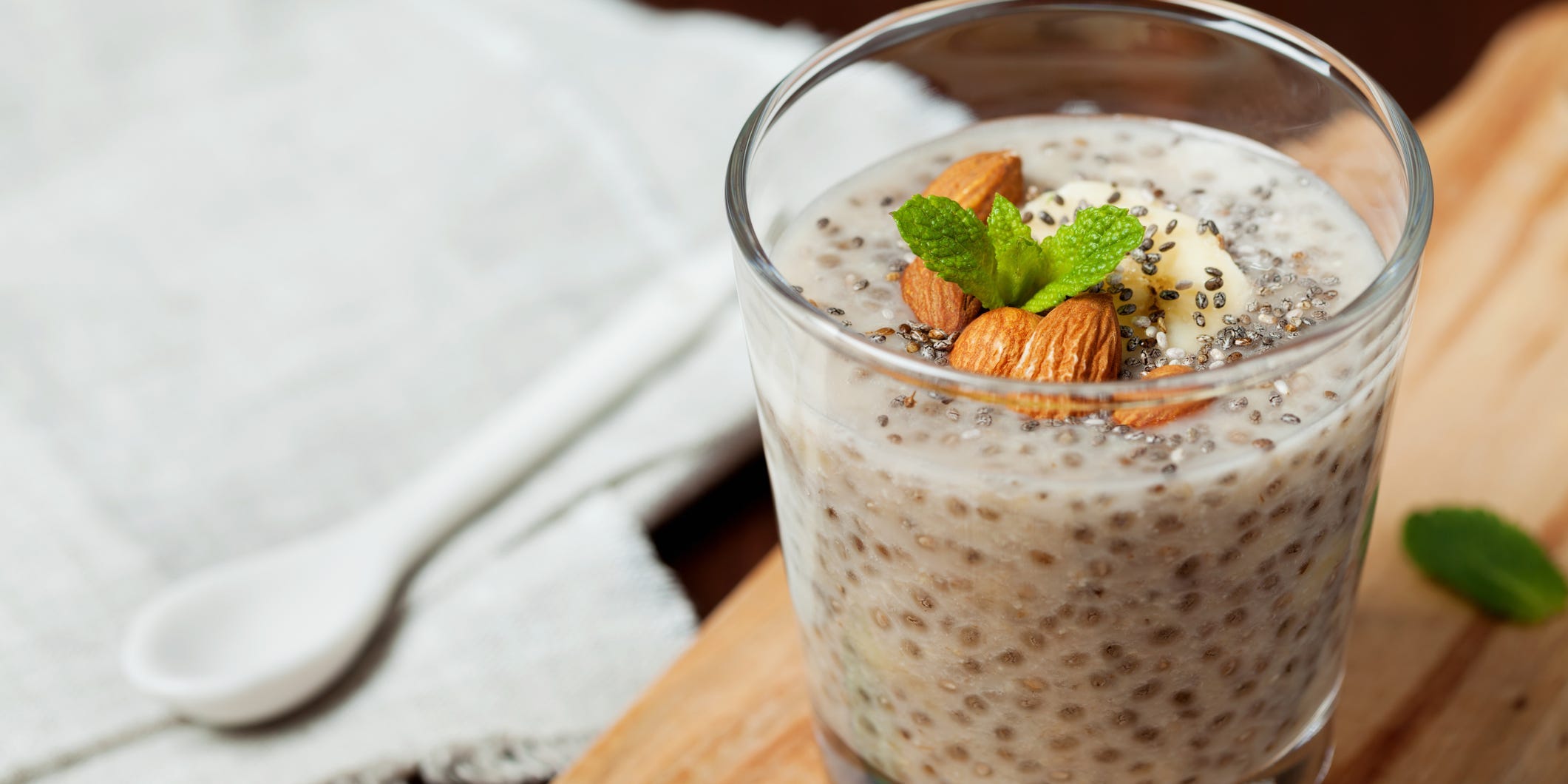
Julia_Sudnitskaya/Getty Images
Breakfast: Cinnamon walnut chia pudding with sliced banana
Lunch: Rosemary lemon turkey sliders, sweet potato hash, and marinated green beans with sauerkraut
Dinner: Poached cod, mashed roasted fennel (or celery or onion) and butternut squash, and spiced collards (or spinach or kale)
Day 2
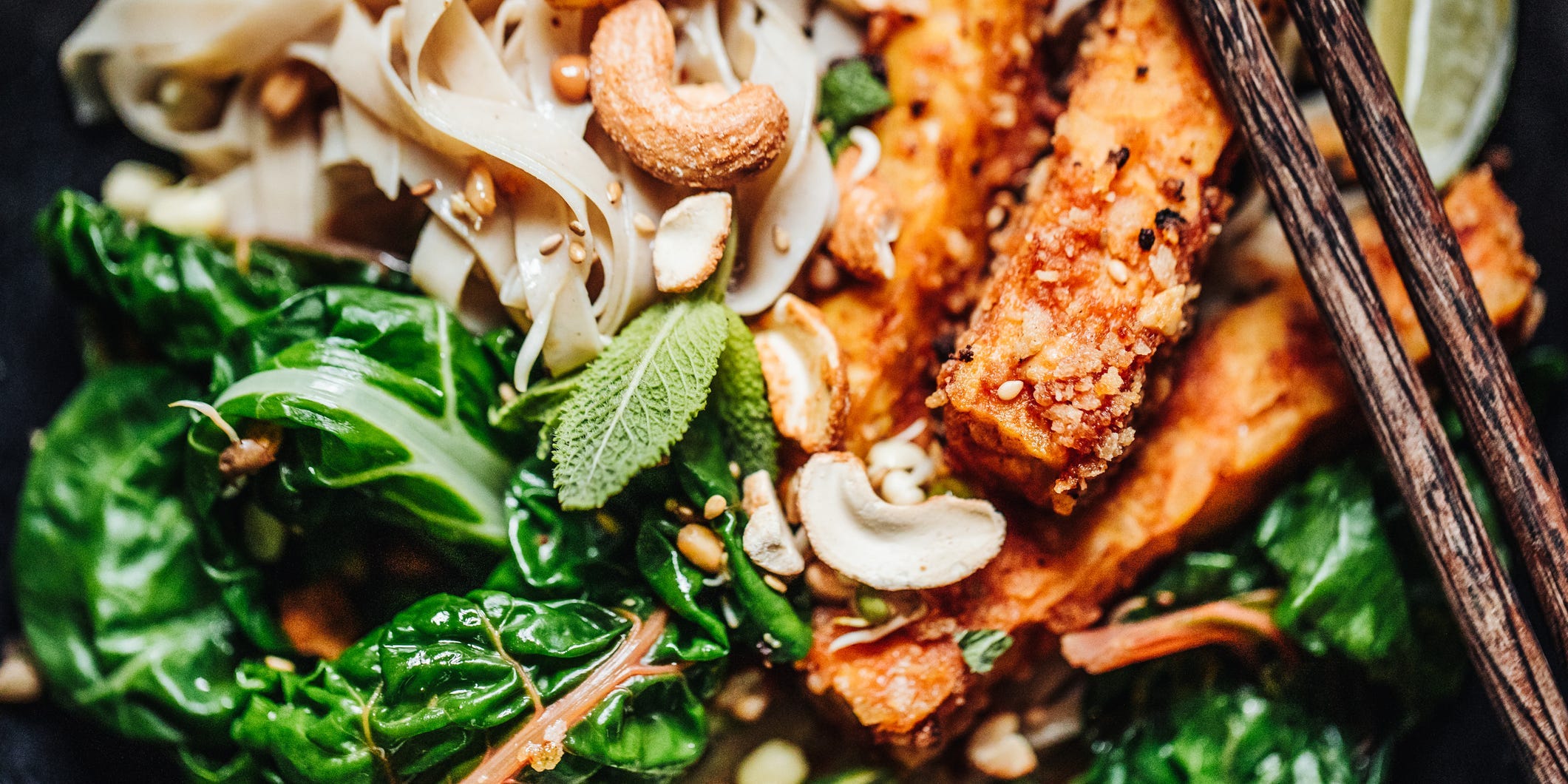
alvarez/Getty Images
Breakfast: Chia pudding with almond milk and berries
Lunch: Cauliflower rice bowl with curried lentils, roasted broccolini (or broccoli), and apple cider vinaigrette
Dinner: Sesame orange tempeh bowl with bok choy (or spinach), broccoli, seared avocado, and pickled radish
Day 3
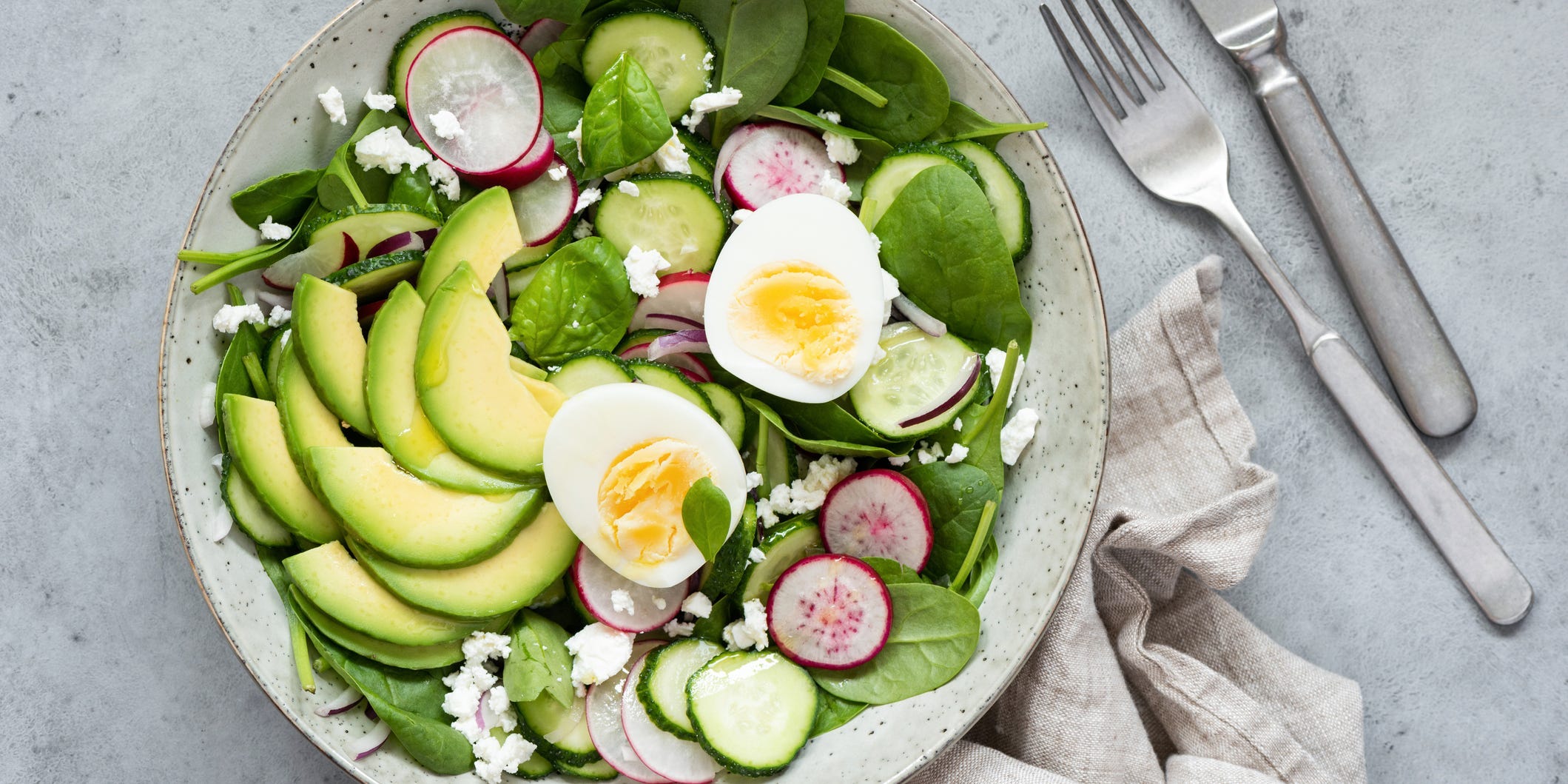
Arx0nt/Getty Images
Breakfast: Banana and almond yogurt parfait with toasted almonds
Lunch: Egg and avocado salad with wilted spinach and lemon caper vinaigrette (or other vinaigrette at the store)
Dinner: Lemongrass garlic chicken bowl with roasted broccoli and carrots, pickled daikon (or turnips or radishes), and scallion vinaigrette (or other vinaigrette you prefer)
Day 4
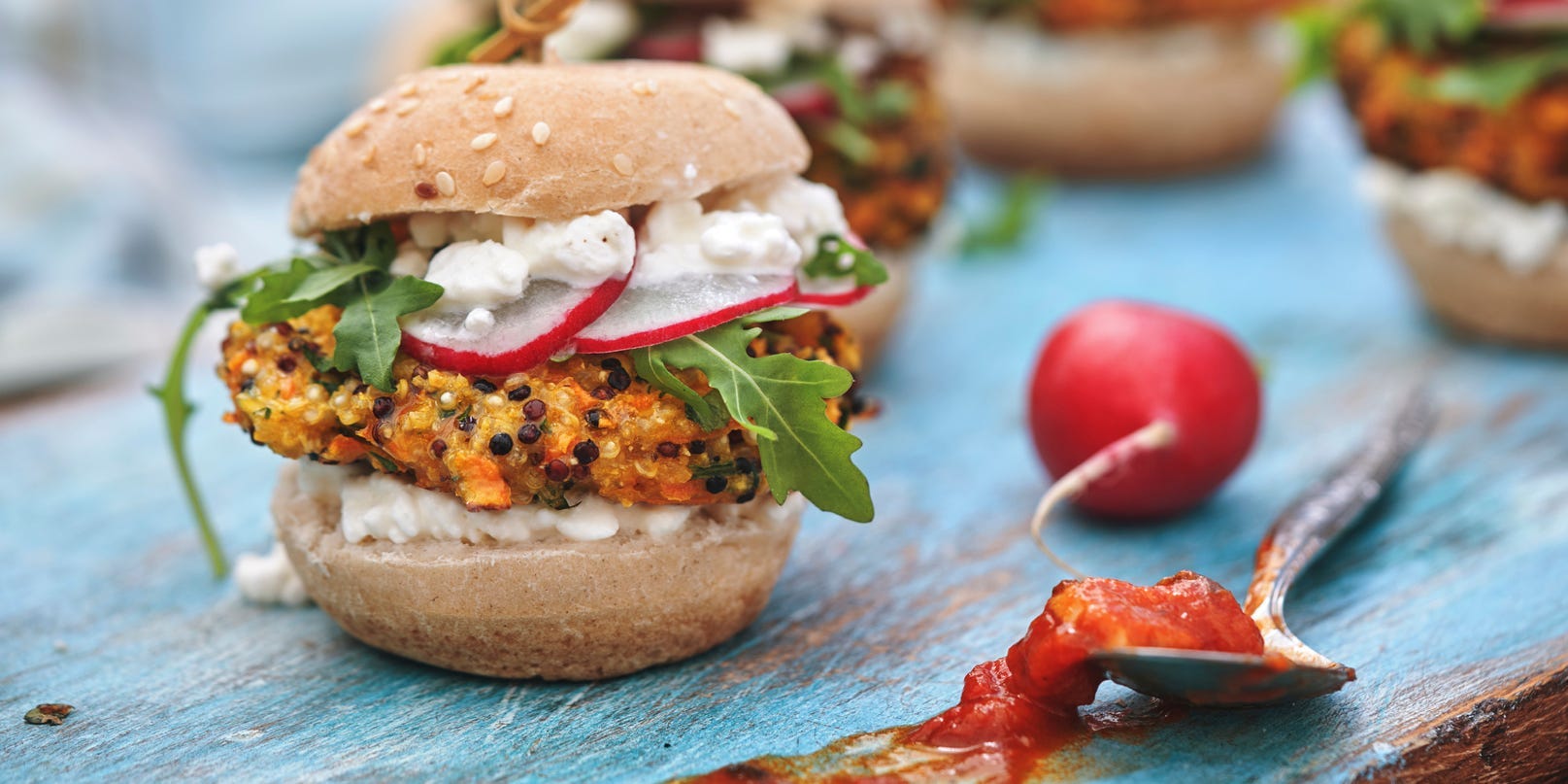
GMVozd/Getty Images
Breakfast: Pineapple, green banana, and maca (or chia seeds or coconut) smoothie
Lunch: Black bean taco bowl, marinated red cabbage slaw (or pico de gallo), avocado, and lime
Dinner: Quinoa sliders with butternut squash fries and red kale and sauerkraut slaw
Day 5
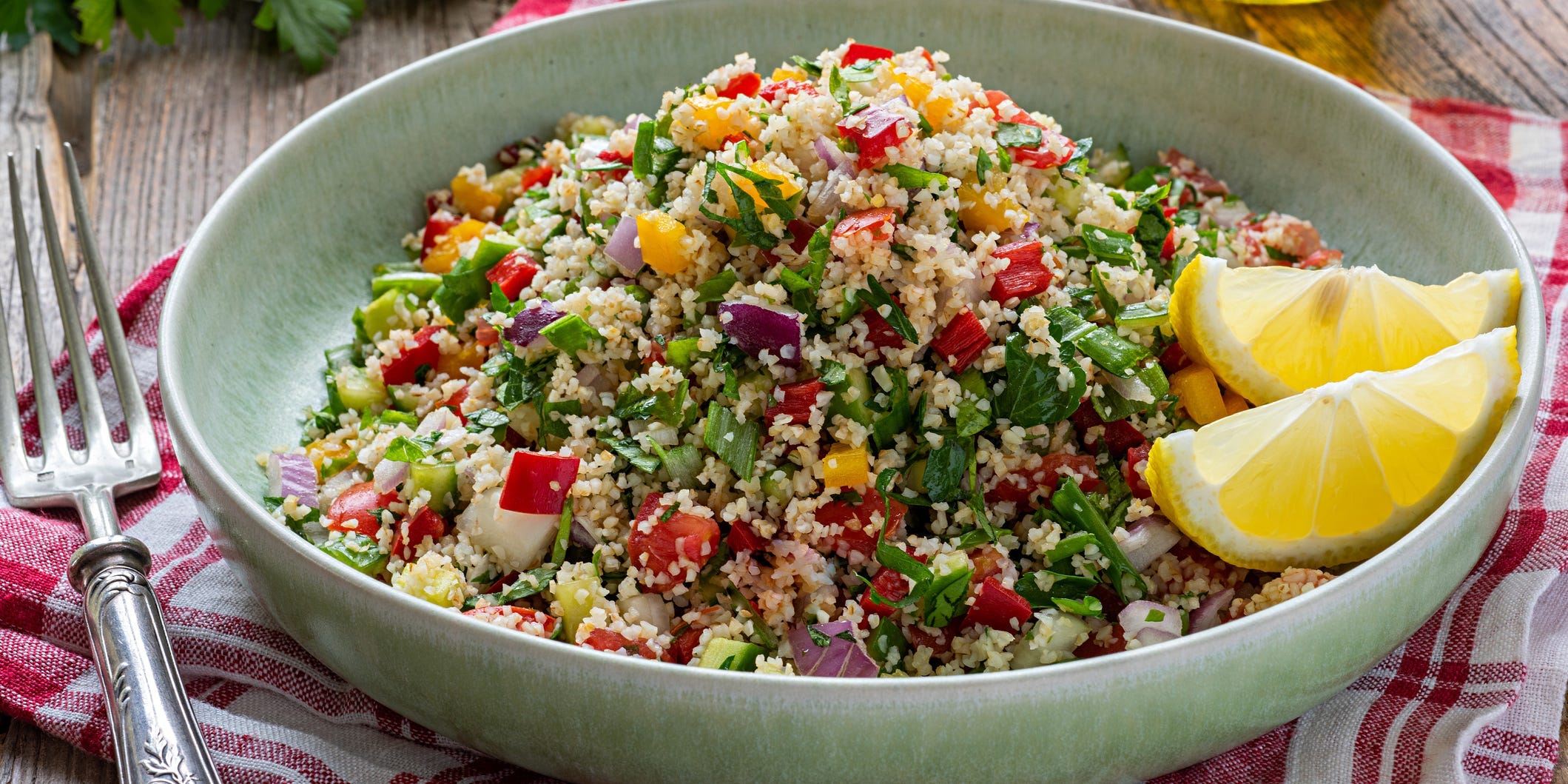
BURCU ATALAY TANKUT/Getty Images
Breakfast: Banana-based smoothie bowl with almond milk, chia seeds, hemp seeds, flax seeds, raw cacao (or unsweetened cocoa powder), and warm blackberries
Lunch: Spring pea bowl with bok choy (or spinach), broccolini (or broccoli), toasted nori, and miso tahini dressing (or other preferable dressing)
Dinner: Cauliflower and quinoa tabouli with roasted beets and pickled red onion vinaigrette
Day 6
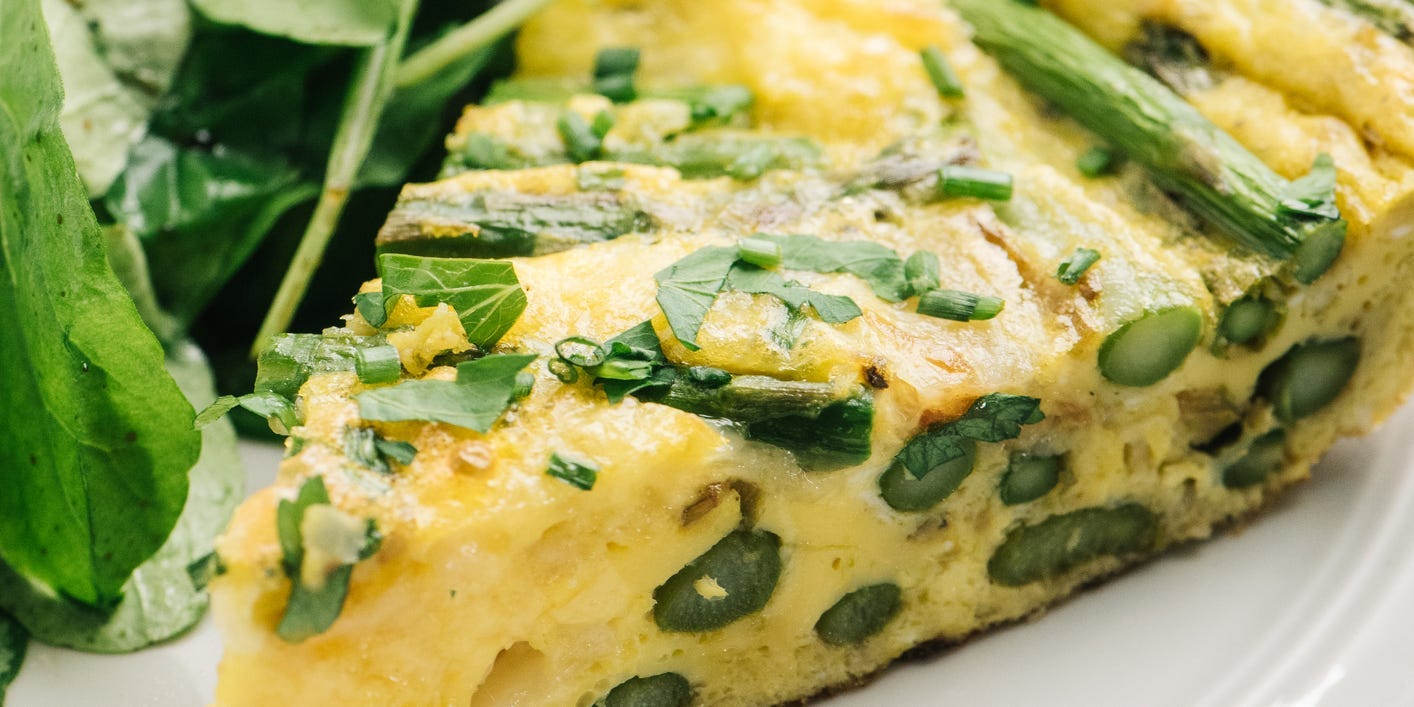
Cavan Images/Getty Images
Breakfast: Asparagus and basil frittata with roasted parsnips, swiss chard, and lemon chili oil
Lunch: Sesame garlic lentils with brown jasmine rice biryani, bok choy (or spinach), and kimchi
Dinner: Lamb (or other ground meat) meatballs with roasted squash, Brussels sprouts, and cumin apple cider vinaigrette
Day 7
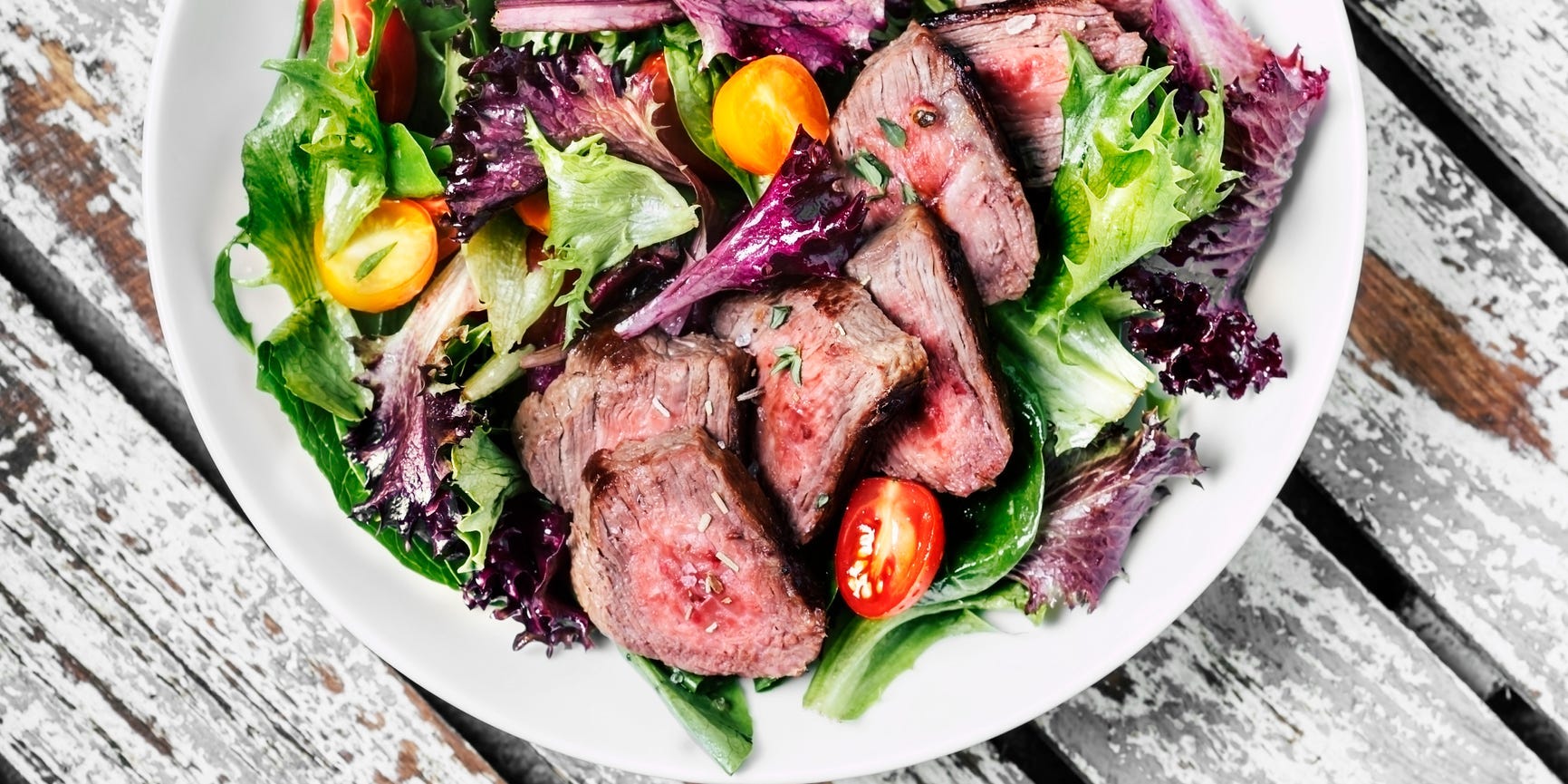
Claudia Totir/Getty Images
Breakfast: Mango lime smoothie with toasted coconut
Lunch: Smoky grass-fed sirloin (or other meat) with parsnip puree and pickled green bean and fennel (or celery or onion) salad
Dinner: Five-spice tempeh with daikon slaw, wilted greens, and sesame lime dressing
Insider's takeaway
What you eat plays a significant role in preventing and managing inflammation and the many diseases associated with it.
As a general guide, the anti-inflammatory diet emphasizes eating more antioxidant-rich plant-based foods (such as fruits, vegetables, legumes, and whole grains) while minimizing your consumption of foods high in added sugars, saturated fat, or trans fats.
Another crucial component of the anti-inflammatory diet is optimizing your omega-6 to omega-3 ratio by prioritizing omega-3 over omega-6 fats.
Dit artikel is oorspronkelijk verschenen op z24.nl